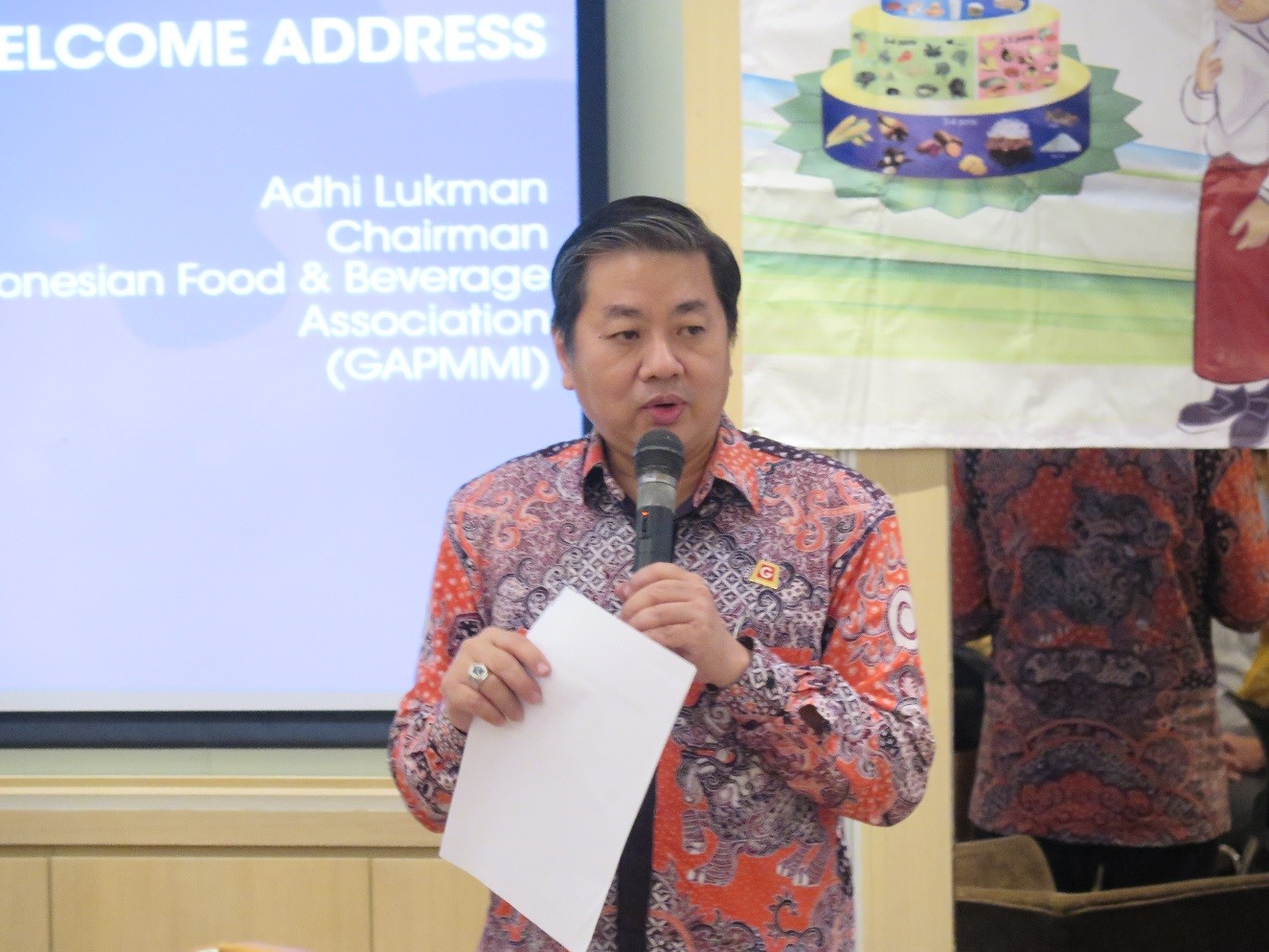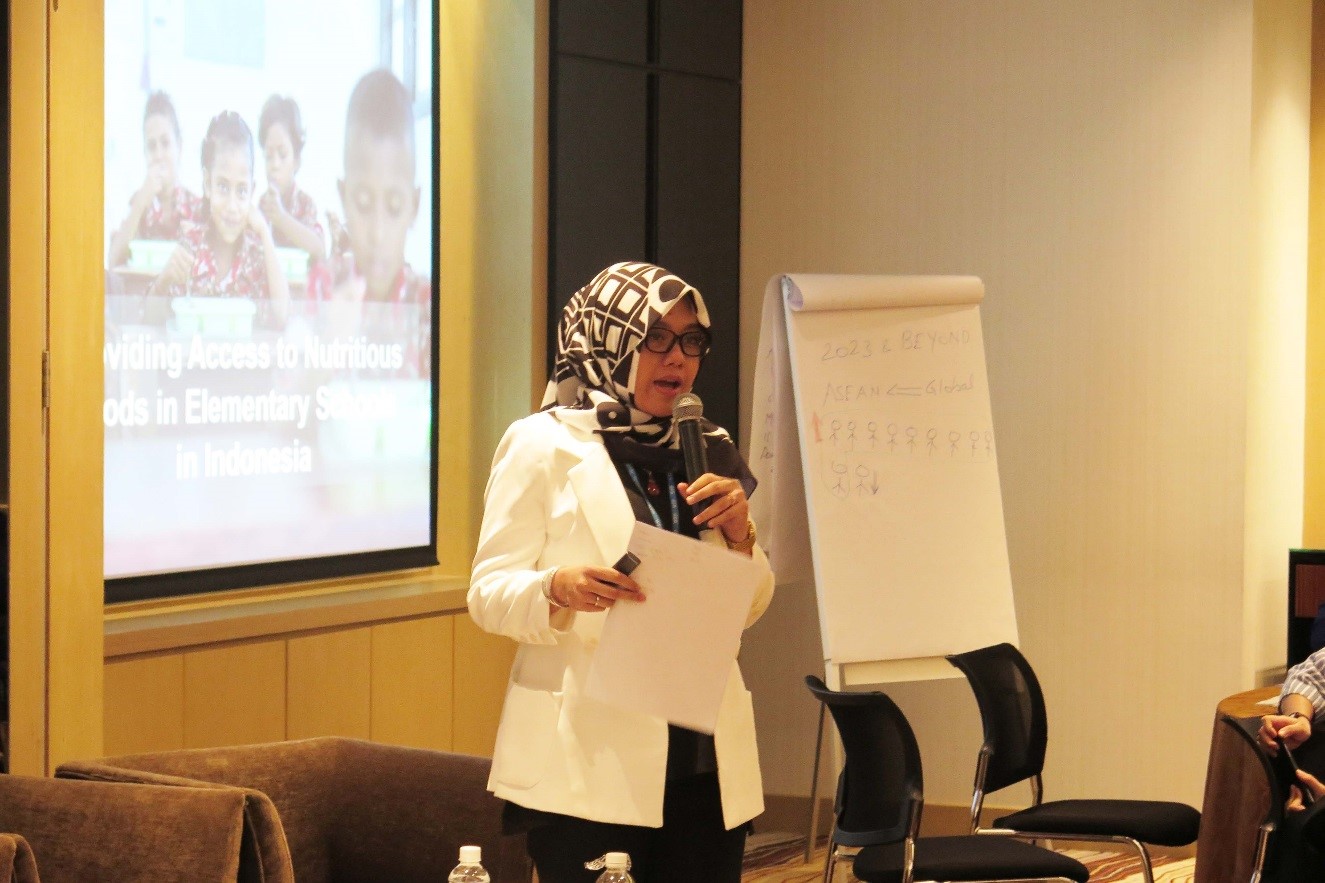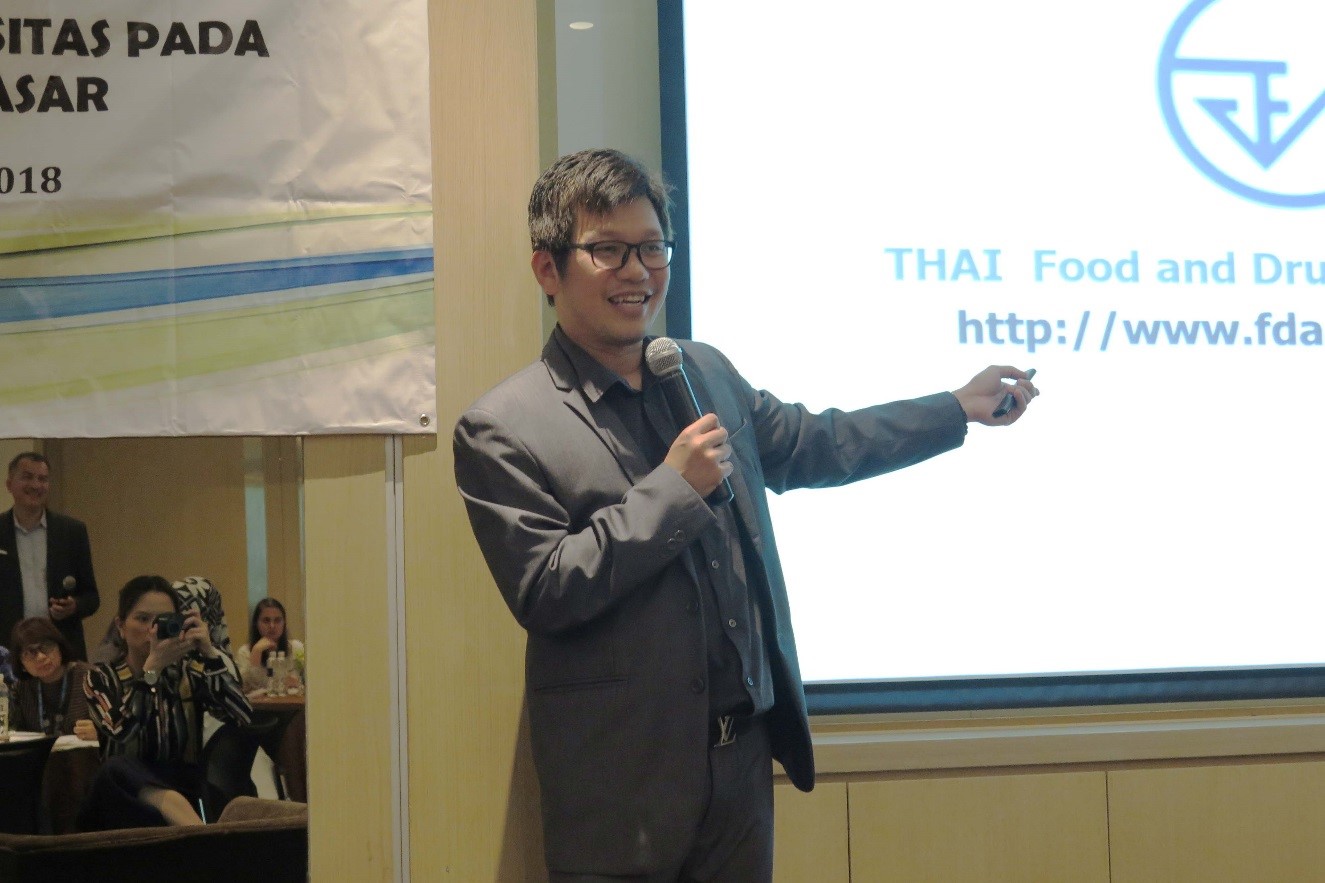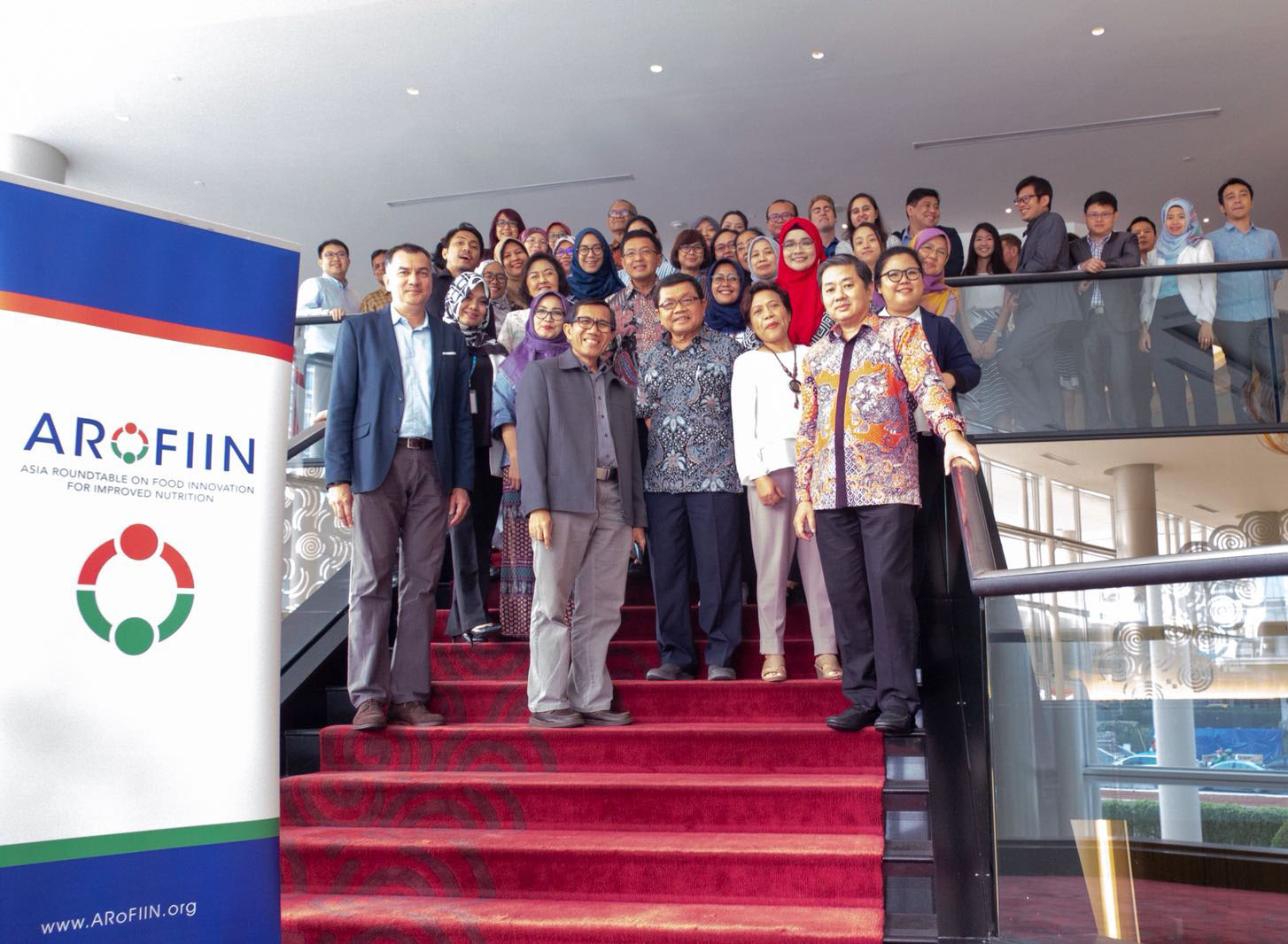
News & Events
Positive Actions for A Healthier Asia at the 4th ARoFIIN Roundtable
Dietary imbalances coupled with the growing burden of malnutrition is of a growing concern globally. However, the problem is especially acute in Asia with 48% overweight/obese children, 24% stunted and 10% wasted children living in this part of the world.
The adverse effects of Asia’s vast serving of malnourishment will inadvertently affect whole economies as healthcare budgets, labour productivity and economic activity are impacted. The Asia Roundtable on Food Innovation for Improved Nutrition (ARoFIIN) has been working collectively with stakeholders and local partners to identify tailored interventions to tackle these problems in Asia.
As a catalyst for multi-stakeholder action, ARoFIIN gathered senior delegates across sectors including the President’s office of Indonesia, Ministries of Health, Academia, Inter-Governmental Organisations (IGOs) and the food industry around Asia in Jakarta, Indonesia for the 4th ARoFIIN Roundtable on 26 July 2018, to discuss progress and explore strategies to scale up initiatives to tackle the growing burden of malnutrition in the region.
Mr Adhi Lukman, Chairman of the Indonesian Food and Beverage Association (GAPMMI), welcomed the delegates and highlighted that in spite of Indonesia’s flourishing economy, it is also one of the few countries with a high prevalence of stunting in children – a precursor to the increased risk of developing non-communicable diseases when they are older.

Mr Adhi Lukman giving his welcome address and emphasising the need for open dialogues
between stakeholders to advance the regional health agenda.
With the theme “Embracing Uncommon Collaborations for a Healthier Asia“, ARoFIIN introduced the two pilot programmes that have been formed through uncommon collaborations and revealed that these initiatives will be launched in Indonesia and Thailand by the end of 2018. The pilot programmes were initiated through the follow-up workshops on “Tackling Obesity in ASEAN: Prevalence, impact, and guidance on interventions” where the importance of fostering healthy behaviours among school-aged children was identified as the focal point of ARoFIIN’s collaboration with the United Nations World Food Programme (WFP), the Indonesia Nutrition Association (PERSAGI), the Thailand Food and Drug Administration (TFDA) and Mahidol University.
For the initiative in Indonesia, Ms Diandra Pratami, Government Partnerships Officer at the Word Food Programme (WFP) and one of the key partners for the pilot programme, highlighted that more than a third of school-aged children do not consume nutritious food, particularly fruits and vegetables which are essential for the growth and development of a child. To reduce the number of children from falling ill and missing school, WFP together with the Government of Indonesia revived the national school meal programme which aims to provide children with nutritious meals alongside education on nutrition, health and hygiene. Through this partnership, WFP aims to ensure that the meals provided and education materials meet the highest international standards through the development of nutritious menus, training cooks, teacher and farmers to implement the programme.

Ms Diandra Pratami of the World Food Programme (Indonesia), introducing the
National School Meal Programme carried out in collaboration with the Indonesian Government
“Leveraging on the support from ARoFIIN to accelerate the reach of the school programme initiative, the messaging to promote the consumption of fruits and vegetables will be strengthened through the development of interactive, educational resources and knowledge sharing during the school curriculum to foster healthy eating habits in the younger generation” she said.
Similarly, the initiative in Thailand takes on a community approach to encourage self-reliance on maintaining good health. Mr Araya Rojjanawanicharkorn, a consultant for the Thai Food and Drug Administration and a partner for the pilot in Thailand, shared some insights on the “Nutri-Teacher” initiative where children play a key role in driving nutrition education within the community by sharing and implementing their learnings on healthy behaviours with their families, creating a cycle for demand generation and strengthening nutrition literacy. The self-assessment toolkit which forms the core of the initiative serves as a multi-purpose tool as it evaluates the nutrition knowledge, eating and lifestyle behaviours of an individual ahead of providing the children with in-depth knowledge on nutrition-concepts which are conveyed by the teacher through E-learning and infographics.

Mr Araya Rojjanawanicharkorn of the Thailand Food and Drug Administration, explaining the “Nutri-Teacher” initiative.
These pilot initiatives emphasise on the bottom-up approach, tailored to its respective social and cultural norms; as a “one-size-fits-all” approach would not sufficiently address a complex, multi-dimensional problem such as malnutrition.
Launching into real action, the delegates identified key challenges faced by each sector to tackle malnutrition which included the lack of alignment between government ministries and other stakeholders as a result of differing agendas, lack of supporting research that reflect local health status and consumer eating and lifestyle habits to support policy development alongside budget limitations to combat the emerging health challenges.
The key ingredient to building a healthier, well-nourished and a more sustainable Asia, is simple yet complex – partnerships. For partnerships to be established and scaled, delegates agreed that there is a need to establish a common agenda across agencies and to develop a sensitive approach that is localised and nutrition-specific to encourage the adoption of healthy lifestyles.


